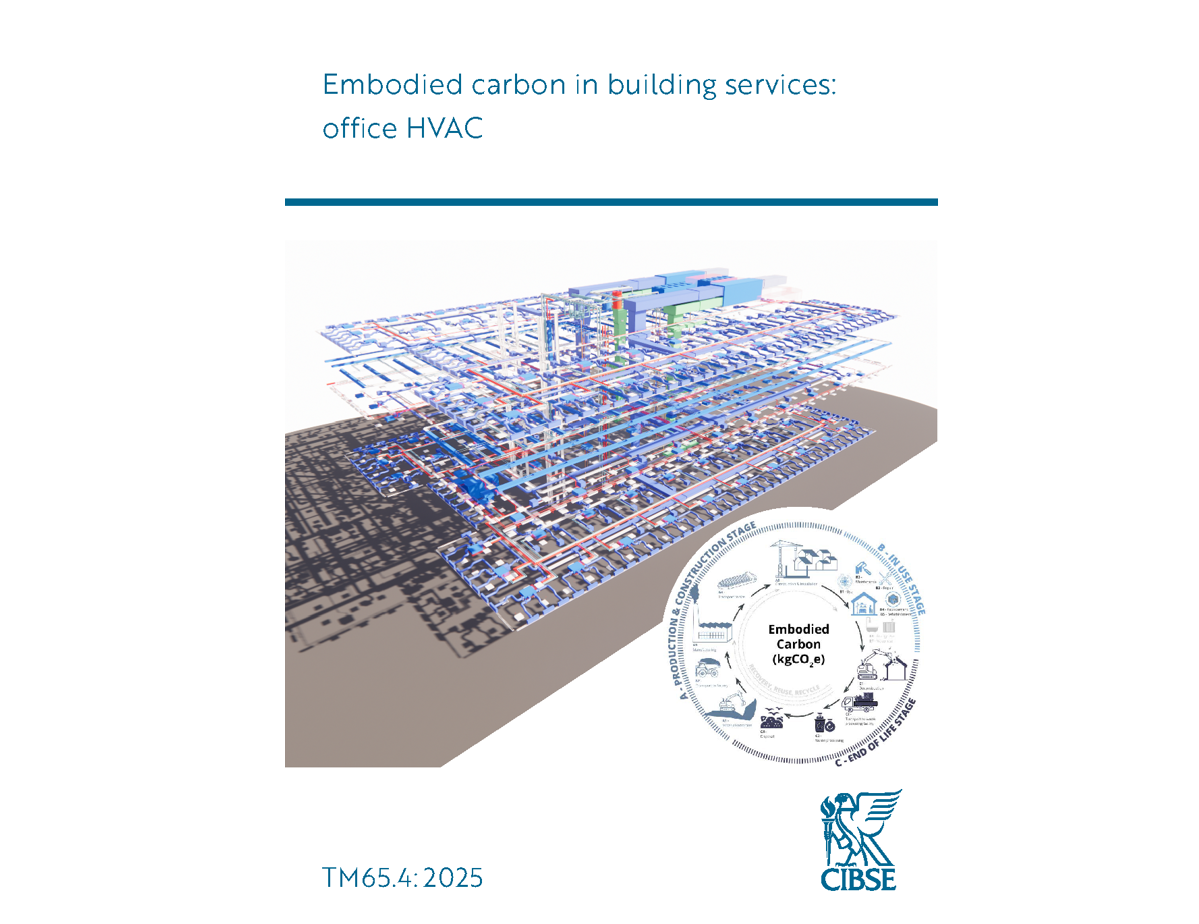CIBSE has released TM65.4: Embodied carbon in building services – Office HVAC, a new guidance document that assesses the embodied carbon impact of heating, ventilation, and cooling (HVAC) systems in typical UK office buildings.
The study was developed by Introba and sponsored by both CIBSE and Introba. It applies the CIBSE TM65 methodology to calculate embodied carbon at both product and system levels, using data shared by manufacturers. The aim is to support engineers, designers, and sustainability professionals in selecting HVAC strategies aligned with net zero design objectives.
TM65.4 evaluates HVAC systems in a standard new-build five-storey office building in the UK, comparing two operational timeframes: a 60-year building service life and a 12-year tenancy period. This dual approach highlights how embodied carbon outcomes shift over time and informs decision-making across different phases of a building's life cycle.
The publication offers a framework to understand how HVAC choices impact embodied carbon and provides early-stage benchmarks in cases where Environmental Product Declarations (EPDs) are unavailable. It aligns with the broader CIBSE TM65 series and aims to support consistent, evidence-based decisions in low-carbon office design.
TM65.4 is described as a starting point for evaluating embodied carbon in office HVAC systems, with the authors noting that its results should not replace project-specific assessments as designs progress.
